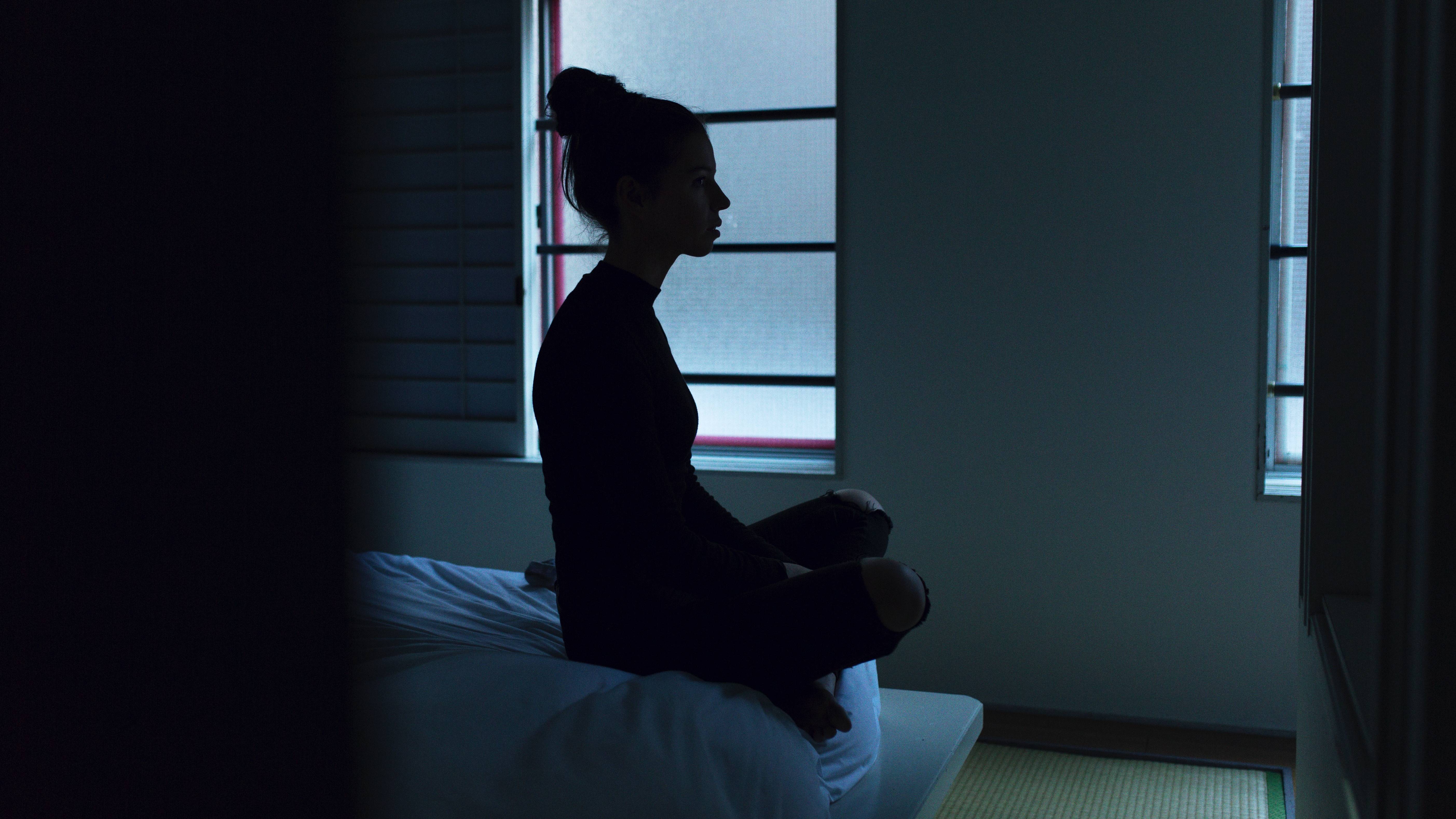Why do I keep dreaming about my deceased loved one?
Posted by AK Lander | On October 16, 2018 15:44
We spoke to five dream specialists to find out how dreams play a part in the grief process, and why we sometimes dream about our deceased loved ones.

Dealing with grief is no easy feat. In between organising affairs and choosing a memorial headstone, we’re trying to process the loss and find a way to live with the grief. But it’s not uncommon that while we’re trying to move forward, our loved ones to appear to us in a dream, sometimes years after their passing and often when we least expect it.
We spoke to several psychotherapists and dream analysts to find out how dreams play a part in the grief process, and what it might mean when we have an unsettling dream about our deceased loved one.
Dreaming to help process feelings
“Dreaming about a deceased loved one when someone close to us has died is very common. Sometimes these dreams can occur for several months, even years,” says Matthew Bowes, a psychotherapist from Brighton.
“The main reason for this is that dreams are our body-mind’s way of processing and integrating the emotional events that affect us. Indeed, there is a lot of evidence from neuroscientists who study our sleeping and dreaming to support this. Many argue that as bizarre and odd as our dreams may seem, our dreams are actually unconscious processes which are not dissimilar to the way we think about the things that concern us when we are awake.”
But why are these dreams so strange? And why can they leave us feeling unsettled in the morning? Matthew says: “The difference is that when we dream, the parts of the brain responsible for our rational thinking are switched off and activity in the emotional centres of our brain can increase by up to 30% more than in waking life, which explains why dreams can have a profound effect on our feelings.”
Aubyn de Lisle, a psychotherapist based in Market Harborough, also agrees that when it comes to dreams, our rational side becomes clouded by the intense power of our feelings. “We often underestimate the importance of our feelings and emotions. They put us in touch with a sensory level of truth that our cognitive functions cannot.
“Our dreams often allow us to work through emotional issues or unfinished business in a way that is free from the constraints of the rational mind. This often makes the meaning of our dreams difficult to understand, with the key to understanding them through the atmosphere, setting, feelings and associations they contain.”
Seeking guidance from the deceased
Simon Stafford-Townsend, a therapist from Bristol, believes that dreams are about making sense of what's happening in our lives and seeking guidance from the person we lost. “When dreams of deceased loved ones come up in my client work, the dreamwork often reveals that my client is seeking the guidance or support that they are missing from that person.
“Something is happening in their life now, and the person they need most is no longer here. What the dream reveals is that emotionally at least, they are still here because we internalise important people in our lives. Remember the dream and try talking to that loved one; the meaning of their appearance at this time will become clear.”
Layne Dalfen, a dream interpreter from Montreal, believes that sometimes we need guidance from our loved ones but in a slightly different way - in the form of their qualities. “Often dreams shine a spotlight on other people as a way to pinpoint a behaviour that is missing in ourselves in a current situation. If you dream of a dead friend or relative you think was very assertive, perhaps you need to react like they would in the situation. I might dream of my late father when I’m on a business trip because I need to move closer to that business part of myself. Another question you might ask is if there is someone in your life who is behaving like the deceased person in your dream?”

Dreams harness our deepest feelings
Aubyn says that dreaming of a deceased loved one can often simply mean that we are still grieving for them, and even if it’s been a long time since they passed, these feelings are embedded deep down within our being. “It is natural that we continue to hold on to the loved one emotionally in many ways. Our memories and relationship with the deceased will be connected with our deepest sense of ourselves, our identity and our sense of the meaning of life. This is true even if consciously we convince ourselves that we are ‘over’ the loss.
“Grief may continue to strike unexpectedly at any point, and one way in which it can be experienced is through our dreams, with a powerful charge that might be sad, angry, loving, peaceful or frightening.”
What do different dream scenarios mean?
Dream Analyst Jane Teresa Anderson believes that the mood of the dream can offer different meanings and feelings held by the dreamer. “When our deceased loved ones appear in a dream and act lovingly towards us, or offers us wisdom, it's natural to wonder whether they were there in spirit, and perhaps sometimes they are.
“But it's important to question this because often the loved one will present in an angry, blaming, or dismissive tone, quite different from their personality while alive, and this can leave the dreamer anxious about their deceased loved one's true feelings.”
Matthew believes that our dream scenarios are often linked to the five stages of grief: Denial, Anger, Bargaining, Depression and Acceptance. “These stages are not a linear progression – we might experience several of them at the same time. Equally, we might not experience all of them. But they are a useful way to track what’s happening inside us emotionally – both as we grieve in our waking life and as we try to take on board and find a place for what has happened through our dream life.”
Denial
“Denial in dreams often manifests in encountering our loved one again, but it is important to realise that denial is not a negative response,” says Matthew. “We know that our loved one has died – it is more symbolic than literal. The reality is that often we can’t believe that we will never see our loved one again. At the same time, it can be our body-mind’s wonderful way of bringing some soothing to the pain we are in as it can bring feelings of relief and joy as well as sadness. The dreaming mind is often a kind of natural therapy.”
Anger
“Anger is a very natural feeling to have when we lose a loved one. In dreams, we may see our loved one being angry, even angry towards us. This can be very painful,” says Matthew. “Sometimes it may indicate that when they were dying, our loved one felt very angry about what was happening to them. They may not have shown it but we may have felt it, or they may have shown it and we were at a loss as to what to do.
“We may also have been angry with them for not taking proper care of themselves, or we feel angry at the doctors for not saving them, or angry at life or God for allowing this to happen. In dreams, manifestations of anger are the body-mind’s way of trying to come to terms with our relationship to our loved one and the circumstances of their death.”

Bargaining
“Bargaining often manifests in scenarios such as discovering the illness more quickly or preventing the accident from happening,” says Matthew. “Often these images are met with a counter image – we discover the illness but then we get into a panic because we don’t know what to do and there seems to be nothing that can be done. It is as if our body-mind is testing our wish for the illness to be avoided against our knowledge that it wasn’t. Often such situations bring up guilty feelings ‘if only I had done this’ or ‘if only they had done that’.”
Depression
“When we are in the depressive stage in our waking life, it is a sign our grief has deepened, and we are more fully registering that our loved one has died,” says Matthew. “This can feel very painful. Often during this stage, we might dream of meeting our loved one again – the dream is compensating for the pain of our loss. Equally, we might have more harrowing dreams where we feel as if we are not able to control the situation of their death. The important thing to remember about depression after a loss is that it is an entirely natural and appropriate response.”
Acceptance
“Acceptance is often misunderstood and assumed to mean that we are alright or okay with what has happened to us,” says Matthew. “It is really not that at all, it might be that we are never ‘okay’ with it. It is more accurate to say that ‘acceptance’ arises when we see the reality that our loved one is gone and will not return and yet have found a way to integrate our loss into our soul.”
Our dreams can often leave us feeling a bit perplexed, but if your dreams start to disturb your sleep and your general wellbeing, psychotherapy and counselling may help you to understand and make peace with these feelings.
